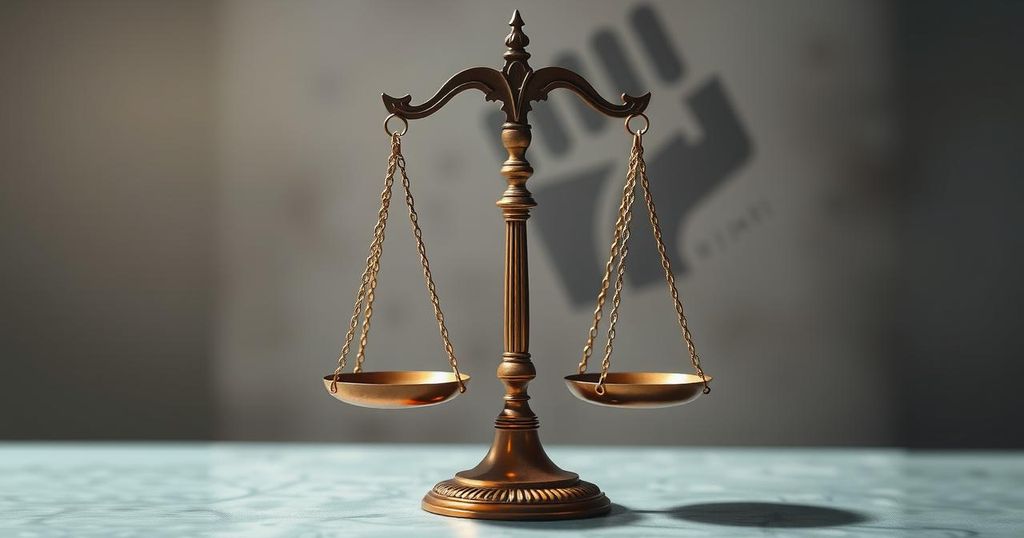Celebrity
ASIA, BE, BEHROOZ EHSANI, ECONOMIC SANCTIONS, FARZANEH NAJARI, FOREIGN POLICY, HUMAN RIGHTS COMMITTEE, IRAN, LAW SOCIETY OF ENGLAND AND WALES, MALCOLM FOWLER, MIDDLE EAST, MOSA ZAHED, NATIONAL COUNCIL OF RESISTANCE OF IRAN, OF LORDS, PEOPLE, RIGHTS, UK, US-IRAN RELATIONS, WOMEN'S RIGHTS
Stella Nguyen
0 Comments
UK Lawmakers Urge Swift Action Against Iran’s Human Rights Abuses
On February 12, UK lawmakers and activists convened in the House of Lords to discuss urgent human rights violations in Iran. The session emphasized support for the National Council of Resistance of Iran (NCRI) and called for the designation of the Islamic Revolutionary Guard Corps (IRGC) as a terrorist organization. Presenters highlighted the need for the UK to take a firmer stance to back the Iranian people’s fight for democracy and freedom.
On February 12, the House of Lords hosted a significant session focusing on human rights in Iran, bringing together influential political and legal figures, along with activists. Mosa Zahed, the founding director of the Middle East Forum for Development, emphasized the urgent need for international intervention amidst reports of ongoing executions, specifically mentioning the case of political prisoner Behrooz Ehsani. He called for the UK to categorize the Islamic Revolutionary Guard Corps (IRGC) as a terrorist organization to support the Iranian populace’s quest for democracy.
Lord Henry Bellingham stressed the necessity of acknowledging the National Council of Resistance of Iran (NCRI) and its goals, emphasizing the importance of halting executions in Iran. He advocated for the UK government’s support of the NCRI, which would help advance global peace and stability. Moreover, he reiterated the call to proscribe the IRGC as a means of supporting those suffering under Iranian oppression.
Farzaneh Najari, a member of the Anglo-Iranian Professionals, provided a stark assessment of the crisis in Iran, describing it as a “land of death” where individuals die for dissenting against the government or resisting oppressive mandates. She cited the NCRI and Maryam Rajavi’s Ten-Point Plan as vital sources of hope for the Iranian people, urging the UK to take swift action to foster regime change.
Malcolm Fowler, a prominent lawyer and member of the Law Society’s Human Rights Committee, criticized the UK government for its reluctance to classify the IRGC as a terrorist organization. He argued that such hesitation reflected weakness and maintained that diplomatic ties with Iran should be contingent on appropriate behavior from the regime. His remarks emphasized the need for a firmer stance against Iranian aggression.
Parliamentarian Jim Shannon called for immediate action, stating that the lives of NCRI supporters were at risk. He highlighted the regime’s reliance on oppression while the Iranian populace remains resolute in their fight for freedom. Emphasizing the significance of Maryam Rajavi’s Ten-Point Plan, he urged the UK government to officially recognize the NCRI as the legitimate opposition to the Iranian regime.
Human rights activist Neda Zebeti pointed out historical parallels between the current movement and the 1979 revolution, stressing the continual demands of the Iranian people. She criticized the UK for failing to designate the IRGC as a terrorist entity, despite listing its proxies as such, labeling this inconsistency as both illogical and unethical.
Councillor Robert Ward expressed optimism regarding the current state of the Iranian regime, stating that it has never been weaker. He noted the decline of Iranian allies and the resilience of the Iranian people in pursuing their goals. Ward emphasized the importance of engaging with Maryam Rajavi and the NCRI, urging the UK to take decisive steps against the IRGC.
Sheida Uraki shared her personal story of loss, recounting the execution of five family members by the Iranian authorities and highlighting the alarming rise in executions. She condemned tyranny and called for the UK to act immediately to halt further executions and support resistance efforts in Iran.
Siavosh Rajabi reaffirmed the necessity of international action supporting the NCRI. He described the organization as a beacon of hope and praised Rajavi’s Ten-Point Plan for garnering worldwide support. Rajabi asserted that recognition of the NCRI would not only promote stability in Iran but also contribute positively to global peace and security.
The session concluded with a unanimous call for action. Lawmakers, activists, and advocates reiterated the necessity for the UK to cease its policy of appeasement and take concrete measures to support a free, democratic, and secular Iran.
The session in the House of Lords highlighted the urgent need for the UK to take decisive action against the Iranian regime’s human rights violations. Calls for the proscription of the IRGC and support for the NCRI’s objectives were underlined by various speakers, who emphasized the necessity of international intervention. The collective sentiment was clear: the time for action to support the Iranian people’s struggle for democracy is imperative.
Original Source: www.ncr-iran.org




Post Comment